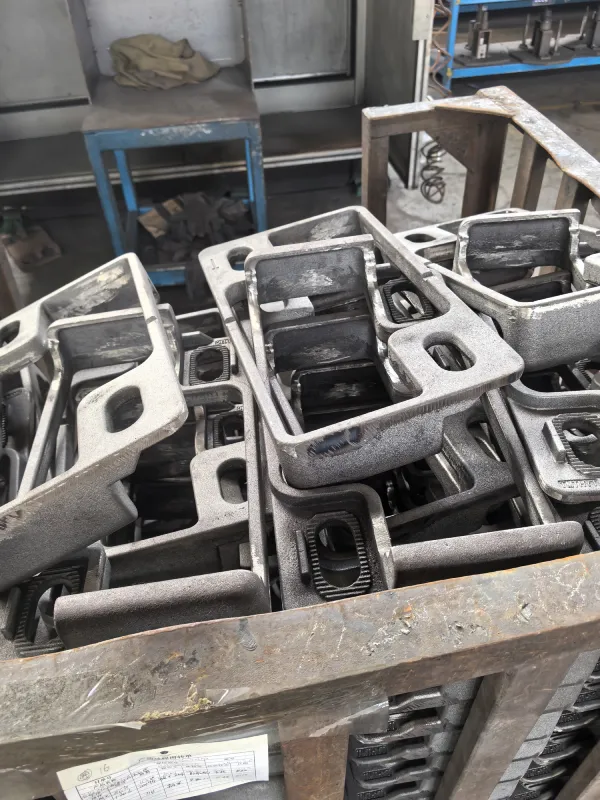Desemba . 15, 2024 10:05 Back to list
domestic hot water heat exchanger
Domestic Hot Water Heat Exchangers An Overview
In many modern households, the demand for hot water is a daily requirement. Whether it’s for bathing, cooking, or cleaning, having a consistent and efficient source of hot water is crucial. One essential component that plays a significant role in heating water is the heat exchanger. This article delves into the concept of domestic hot water heat exchangers, their types, functions, and benefits.
What is a Heat Exchanger?
A heat exchanger is a device that transfers heat from one medium to another without mixing them. In the context of domestic hot water systems, heat exchangers are utilized to transfer heat from a heating source—such as a boiler or a solar panel—to the water used in the household. This process ensures that the water reaches the desired temperature efficiently, providing an uninterrupted supply of hot water for various applications.
Types of Domestic Hot Water Heat Exchangers
There are several types of heat exchangers commonly used in domestic applications.
1. Shell and Tube Heat Exchangers These consist of a series of tubes, one set carrying the heating fluid and the other carrying the domestic water. Heat is transferred through the tube walls, making this type efficient for larger systems.
2. Plate Heat Exchangers Made up of numerous thin plates stacked together, these heat exchangers offer a large surface area for heat transfer. They are compact and provide excellent efficiency, making them a popular choice for residential use.
3. Coil Heat Exchangers In this design, a coil of tubing is immersed in the hot fluid, allowing for effective heat exchange. They are often used in water tanks and are particularly useful for solar water heating systems.
4. Direct and Indirect Heat Exchangers Direct heat exchangers allow the domestic water to flow through the heating source, while in indirect systems, the heating source and the domestic water remain separate, with heat transferred through the walls of the heat exchanger.
domestic hot water heat exchanger

How Do They Work?
The operation of a domestic hot water heat exchanger is relatively straightforward. When the hot fluid circulates through the heat exchanger, it transfers its heat to the cold domestic water flowing alongside it. This process continues until the water reaches the set temperature. The size and efficiency of the heat exchanger determine how quickly and effectively the heat transfer occurs.
Advantages of Using Heat Exchangers
1. Efficiency Heat exchangers can achieve high thermal efficiencies, ensuring that minimal energy is wasted. This is particularly important in reducing overall energy costs in a household.
2. Space-Saving Designs Many heat exchangers, especially plate types, are compact, making them suitable for homes with limited installation space.
3. Versatility They can be used with various heating sources, including natural gas, electric biodiesel, and renewable energy systems like solar panels.
4. Reduced Wear and Tear By using heat exchangers, the heating source generally works less hard to maintain water temperature, resulting in reduced wear and longer lifespans for heating equipment.
Conclusion
Domestic hot water heat exchangers are essential components that ensure an efficient and reliable supply of hot water in homes. By understanding their types, functions, and benefits, homeowners can make informed decisions about their water heating systems. As the demand for energy-efficient solutions continues to rise, the role of heat exchangers in domestic settings is becoming increasingly important. Adopting these technologies not only enhances comfort but also contributes to energy conservation efforts, making them a significant choice for modern households.
-
Premium Cast Iron Water Main Pipe for Robust Infrastructure
NewsAug.27,2025
-
A-Rated Cast Aluminum Boilers: High-Efficiency Condensing Gas & LPG
NewsAug.26,2025
-
OEM Cast Silicon Aluminum Alloy Heat Exchanger | Custom & High Performance
NewsAug.25,2025
-
Centrifugally Cast Iron Water Main Pipe | Ductile Iron Solutions
NewsAug.24,2025
-
Durable Cast Steel Concrete Pipe Mold Bottom Rings & Base Trays
NewsAug.23,2025
-
Centrifugally Cast Iron Water Main Pipe for Reliable Mains
NewsAug.22,2025


